Genre Adventure. Page - 15

et--but 'The Flowers o' the Forest,' and from that wandered through 'Auld Robin Gray' and 'The Land o' the Leal,' and so got at last to that most soul-subduing of Scottish laments, 'Lochaber No More.' At the first strain, his brother, who had thrown himself on some blankets behind the fire, turned over on his face, feigning sleep. Sandy M'Naughton took his pipe out of his mouth, and sat up straight and stiff, staring into vacancy, and Graeme, beyond the fire, drew a short, sharp breath. We had often sat, Graeme and I, in our student-days, in the drawing-room at home, listening to his father wailing out 'Lochaber' upon the pipes, and I well knew that the awful minor strains were now eating their way into his soul.
Over and over again the Highlander played his lament. He had long since forgotten us, and was seeing visions of the hills and lochs and glens of his far-away native land, and making us, too, see strange things out of the dim past. I glanced at old man Nelson, and was startled at the eager, alm
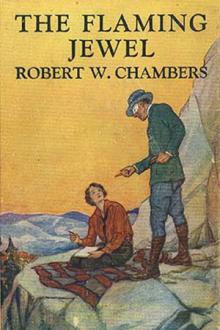
any young girl can stomach the life at Clinch's."
"It's a wonder what a decent woman will stand," observed Stormont. "Ninety-nine per cent. of all wives ought to receive the D. S. O."
"Do you think we're so rotten?" inquired Lannis, smiling.
"Not so rotten. No. But any man knows what men are. And it's a wonder women stick to us when they learn."
They laughed. Lannis glanced at his watch again.
"Well," he said, "I don't believe anybody has tipped off our man. It's noon. Come on to dinner, Jack."
They cantered forward into the sunlit clearing. Star Pond lay ahead. On its edge stood Clinch's.
III
Clinch, in his shirt sleeves, came out on the veranda. He had little light grey eyes, close-clipped grey hair, and was clean shaven.
"How are you, Clinch," inquired Lannis affably.
"All right," replied Clinch; "you're the same, I hope."
"Trooper Stormont, Mr. Clinch," said Lannis in his genial way.
"Pleased to know you," said Clinch, le

perchance to hear again that mirthful, happy laugh.
Then game a gust of wind, the sun retreated, the soldiers gasped, and lo! before Mr. Inch or Mr. Corporal had realized that the picture was made of flesh and blood, horse and rider has disappeared, there, far out across the Heath, beyond the gorse and bramble and the budding heather, with not a handful of dusk to mark the way they went.
Only once from far, very far, almost from fairyland, there came, like the echo of a sliver bell, the sound of that mad, merry laugh.
"Beau Brocade, as I live!" murmured Mr. Inch, under his breath.
Chapter II
The Forge of John Stich
John Stich too had heard that laugh; for a moment he paused in his work, straightened his broad back and leant his heavy hammer upon the anvil, whilst a pleasant smile lit up his bronzed and rugged countenance.
"There goes the Captain," he said, "I wonder now what's tickling him. Ah!" he ad

Carthage was coming swiftly to an endbefore them. Under their very eyes the two Roman galleys had shot in,one on either side of the vessel of Black Magro. They had grappled withhim, and he, desperate in his despair, had cast the crooked flukes ofhis anchors over their gunwales, and bound them to him in an iron grip,whilst with hammer and crowbar he burst great holes in his ownsheathing. The last Punic galley should never be rowed into Ostia, asight for the holiday-makers of Rome. She would lie in her own waters.And the fierce, dark soul of her rover captain glowed as he thought thatnot alone should she sink into the depths of the mother sea.
Too late did the Romans understand the man with whom they had to deal.Their boarders who had flooded the Punic decks felt the planking sinkand sway beneath them. They rushed to gain their own vessels; but they,too, were being drawn downwards, held in the dying grip of the great redgalley. Over they went and ever over. Now the deck of Magro's ship i
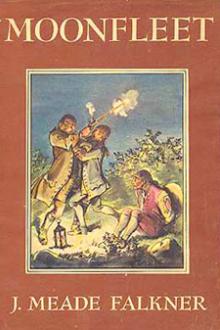
d a little round long-necked bottle, from which he poured out a glass for Ratsey and himself. Then he half-filled the third, and pushed it along the table to me, saying, 'There, take it, lad, if thou wilt; 'twill do thee no good, but may do thee no harm.'
Ratsey raised his glass almost before it was filled. He sniffed the liquor and smacked his lips. 'O rare milk of Ararat!' he said, 'it is sweet and strong, and sets the heart at ease. And now get the backgammon-board, John, and set it for us on the table.' So they fell to the game, and I took a sly sip at the liquor, but nearly choked myself, not being used to strong waters, and finding it heady and burning in the throat. Neither man spoke, and there was no sound except the constant rattle of the dice, and the rubbing of the pieces being moved across the board. Now and then one of the players stopped to light his pipe, and at the end of a game they scored their totals on the table with a bit of chalk. So I watched them for an hour, knowing the game my

he time, my brothers Hosea andEphraim were respectively nine and seven, while little Ruth could scarcehave been more than four. It chanced that a few days before a wanderingpreacher of the Independents had put up at our house, and his religiousministrations had left my father moody and excitable. One night I hadgone to bed as usual, and was sound asleep with my two brothers besideme, when we were roused and ordered to come downstairs. Huddling on ourclothes we followed him into the kitchen, where my mother was sittingpale and scared with Ruth upon her knee.
'Gather round me, my children,' he said, in a deep reverent voice, 'thatwe may all appear before the throne together. The kingdom of the Lordis at hand-oh, be ye ready to receive Him! This very night, my lovedones, ye shall see Him in His splendour, with the angels and thearchangels in their might and their glory. At the third hour shall Hecome-that very third hour which is now drawing upon us.'
'Dear Joe,' said my mother, in soot
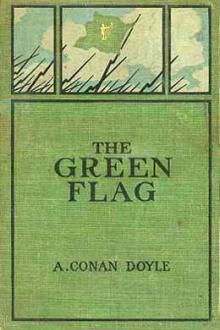
-glass.
"Tell Colonel Flanagan to see to it, Stephen," said the general; and thegalloper sped upon his way. The colonel, a fine old Celtic warrior, wasover at C Company in an instant.
"How are the men, Captain Foley?"
"Never better, sir," answered the senior captain, in the spirit thatmakes a Madras officer look murder if you suggest recruiting hisregiment from the Punjab.
"Stiffen them up!" cried the colonel. As he rode away a colour-sergeantseemed to trip, and fell forward into a mimosa bush. He made no effortto rise, but lay in a heap among the thorns.
"Sergeant O'Rooke's gone, sorr," cried a voice. "Never mind, lads,"said Captain Foley. "He's died like a soldier, fighting for his Queen."
"Down with the Queen!" shouted a hoarse voice from the ranks.
But the roar of the Gardner and the typewriter-like clicking of thehopper burst in at the tail of the words. Captain Foley heard them, andSubalterns Grice and Murphy heard them; but there are times when a deafear is a gift
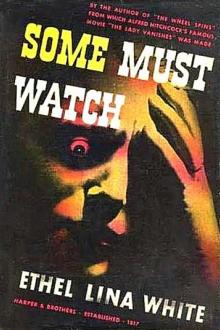
the residential quarter of a prosperous town. It should have been surrounded by an acre of well-kept garden, and situated in a private road, with lamp-posts and a pillar-box.
For all that, it offered a solidly resistant front to the solitude. Its state of excellent repair was evidence that no money was spared to keep it weather-proof. There was no blistered paint, no defective guttering. The whole was somehow suggestive of a house which, at a pinch, could be rendered secure as an armored car.
It glowed with electric-light, for Oates' principal duty was to work the generating plant. A single wire overhead was also a comfortable reassurance of its link with civilization.
Helen no longer felt any wish to linger outside. The evening mists were rising so that the evergreen shrubs, which clumped the lawn, appeared to quiver into life. Viewed through a veil of vapor, they looked black and grim, like mourners assisting at a funeral.
"If I don't hurry, they'll get between me and the house,
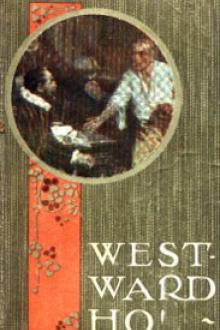
ssed the bottomof the High Street, he came opposite to one of the many tavernswhich looked out upon the river. In the open bay window satmerchants and gentlemen, discoursing over their afternoon's draughtof sack; and outside the door was gathered a group of sailors,listening earnestly to some one who stood in the midst. The boy,all alive for any sea-news, must needs go up to them, and take hisplace among the sailor-lads who were peeping and whispering underthe elbows of the men; and so came in for the following speech,delivered in a loud bold voice, with a strong Devonshire accent,and a fair sprinkling of oaths.
"If you don't believe me, go and see, or stay here and grow allover blue mould. I tell you, as I am a gentleman, I saw it withthese eyes, and so did Salvation Yeo there, through a window in thelower room; and we measured the heap, as I am a christened man,seventy foot long, ten foot broad, and twelve foot high, of silverbars, and each bar between a thirty and forty pound weight.

craft ofbirch bark like a thing of life, answering cheerfully all hiscompanion's questions. Both were gay and light-hearted. On suchoccasions men lose the superficial, worldly distinctions; they becomehuman beings working together for a common end. Simpson, the employer,and Défago the employed, among these primitive forces, were simply--twomen, the "guider" and the "guided." Superior knowledge, of course,assumed control, and the younger man fell without a second thought intothe quasi-subordinate position. He never dreamed of objecting whenDéfago dropped the "Mr.," and addressed him as "Say, Simpson," or"Simpson, boss," which was invariably the case before they reached thefarther shore after a stiff paddle of twelve miles against a head wind.He only laughed, and liked it; then ceased to notice it at all.
For this "divinity student" was a young man of parts and character,though as yet, of course, untraveled; and on this trip--the first timehe had seen any country but his own and little Switzer